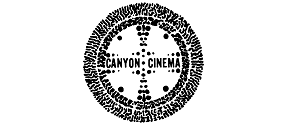Towards a People's Cinema
- Leonard Henny |
- 37 minutes |
- B&W |
- SOUND
This film is a film about filmmaking...about filmmakers in Columbia, Vietnam, Cuba, who use their camera not simply to photograph the world; but to change it. The film begins with an interview with the Cuban filmmaker Santiago Alvarez who reports about the work of the Cuban revolutionary filmmakers: how they operated before, during and after the revolution which feed their country from the Batista dicatorship.
In an excerpt of their film CHILDREN OF COLUMBIA, two Columbian filmmakers, Martha Rodriguez and Jorge Silva, show the ills of a sick society. Their film describes the daily life of thousands of homeless children who roam the streets of Bogota in a society which negates them everything.
Another Colombian filmmaker, Carlos Alvarez, analyzes the power structure of Colombia. This revealing document has lead the filmmaker to prison on the accusation that his film "might incite rebellion."
In the second part of the film, Vietnam was chosen as an example of a society in transition from a pre-revolutionary to a post-revolutionary society. The filmmaker Thep Hong gives a striking account of the immensely difficult working conditions under which the Vietnamese filmmakers produce their films.
In the final part we learn more about the functioning of the Cuban Film Institute in the post-revolutionary phase. The Cuban filmmakers work according to the principle that their films are being made in direct contact with the people in the villages and in the mass organizations; the way the Cubans make use of their filmbusses, and the way the Vietnamese carry their films on bicycles into the countryside.
Credits: Camera: Bo Ohlson. Sound: Norman Seider, Marc Weiss. Editing: Kees Hin. Director: Leonard Henny.

